The Chess Master
This post was co-published at talanhorne.com
Chapter 1: Wisdom
Once upon a time, there lived a wise and educated man---a master of many disciplines. He had degrees from every university in the most difficult of subjects, and he knew all there was to know about chemistry, medicine, quantum physics, philosophy, cosmology, geography, and mathematics.
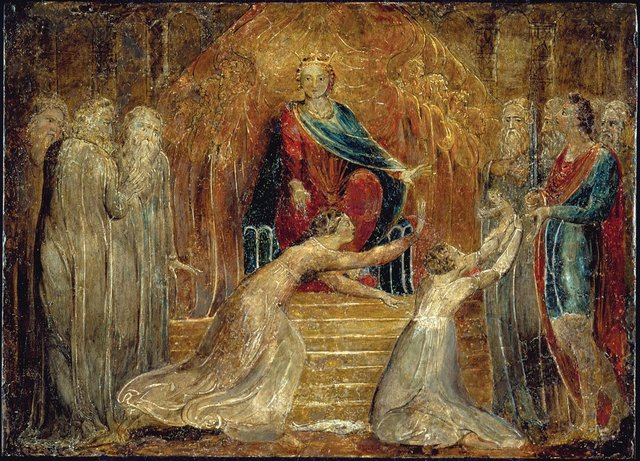
Now, you might think that such a knowledgeable man would have no problems to speak of. But you would be wrong, for he was so much more intelligent than anyone else that he could hardly live among ordinary people. Whenever he looked around him, he would see everyone who could not parallel park, or balance a checkbook, or name all the birds, or solve a crossword puzzle, and he would bemoan the state of the world.
"If only they would follow my example," he told himself, "and be as I am, then the world would be a perfect place." But, despite all his efforts, he could not convince people to follow him. It seemed they were too stupid to realize what morons they all were. They could not even be trusted to make their own decisions.
So the wise and educated man, being selfless, decided he would make all their decisions for them. He chose what they ate, how long they slept, and how much money each person would be entrusted with. He also took control of their education, so that he might groom rising generations to embrace his ideas and follow his philosophies.
Thus, the land began to fill with lords and ladies of learning, and those too stupid to immediately embrace this new wisdom were benevolently silenced by their betters.
Chapter 2: Foolishness
In the course of time, the world truly became a perfect place, where the acolytes of the wise man never knew fear, and all others never lived without it.
And yet, the wise man was not satisfied.
For, from one small corner of the world, whispers of a new trouble reached his ears. It appeared that a bad actor had set foot in the realm---a confidence man who swindled away the livelihoods of anyone who crossed his path.
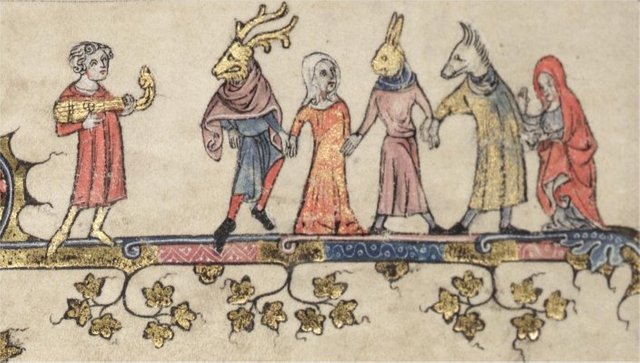
And so cunning was he that even the enlightened were caught by his con, causing them to run to their wise and educated leader, begging for his intervention.
That so many of his best students had fallen prey to this crook troubled the wise man. Clearly, they had strayed from his teachings. Yet their failures also reflected badly on himself, and he was wise enough to know that people would lose confidence in his leadership if his disciples could be so easily bamboozled. His reputation was on the line.
He could have quietly made this criminal disappear, as he had with so many others. But that didn't solve the bigger problem. To keep everyone safe forever, the wise man would have to expose this charlatan, and renew the world's faith in his own infallibility.
To that end, he came up with an elegant idea...
Chapter 3: Risk
It so happened that the wise man was extremely fond of chess, for he was a master of the game and would often use it to demonstrate his intellectual dominance, besting all comers.
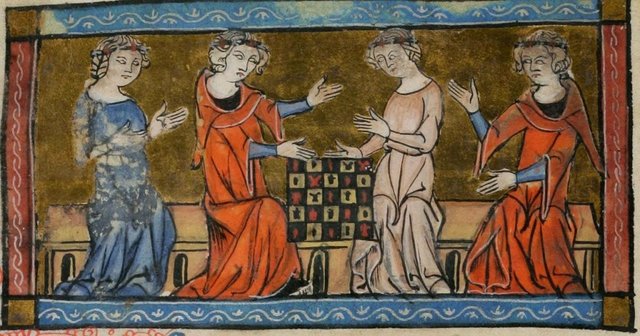
And, though he did not know much about the rascal's background, he was confident that a proper trouncing would cause the man to lose his nerve, and try something foolish. He might even be tricked into confessing, or committing a blatant crime in front of witnesses.
So the wise man journeyed to the city where the rascal operated, and called together all of his disciples to witness the trap he was about to spring.
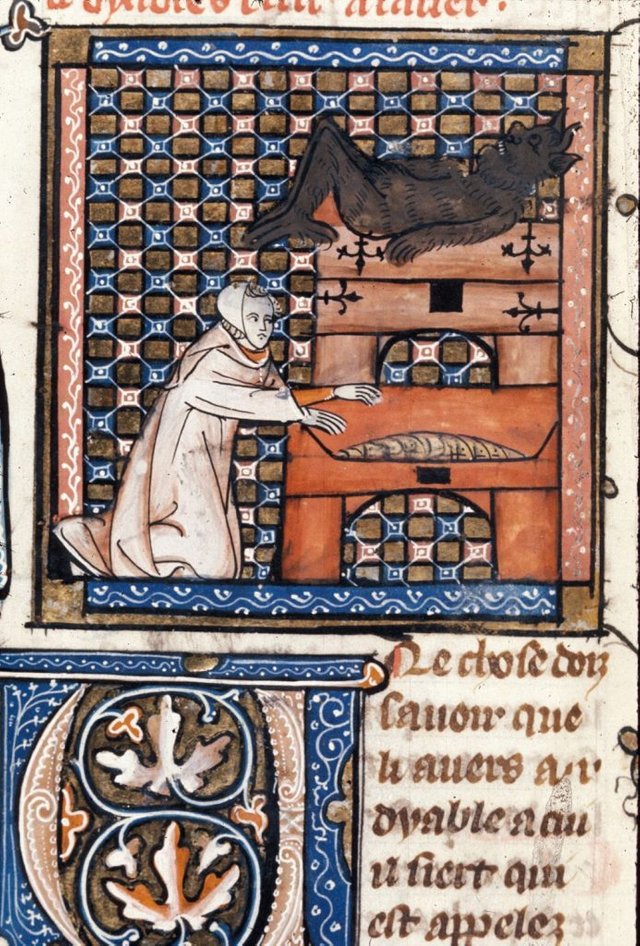
On a day when the crook was out in the open, cheating the ignorant and the learned alike, the wise man cornered him, and got him talking. Though the rascal loved to feign modesty, it was not difficult to get him boasting. He adored his own cleverness and was glad to have it recognized, especially by such a prestigious stranger.
When the lowlife was sufficiently enticed, the wise man stunned him with a wager: two treasure boxes bursting with gold to the winner of a chess game, played right there and then in front of the hundreds of witnesses the wise man had slyly placed in the crowd.
It might have been a mistake for the rascal to accept the wager. For all his craftiness, he did not know what he was getting into. And he had only played chess enough to learn the rules of the game. Never had he won, even against other amateurs.
The lure of gold alone would not have been enough to snare him. But he loved gambling and had a weakness for high-stakes games. Risk was thrilling, and he found the wise man's offer irresistible.
On the spot, he agreed.
Chapter 4: The Game
The wise man could not believe how smoothly his plan was unfolding. He commanded the attention of the entire crowd, filled with people from all classes. Many present had been cheated by the rascal. Their anger was so potent that it had a kind of smell, like sunburned skin. That they could contain themselves was a miracle. As soon as the con artist was exposed, surely they would lynch him.
What a delicious setup! It was time for the game to begin.
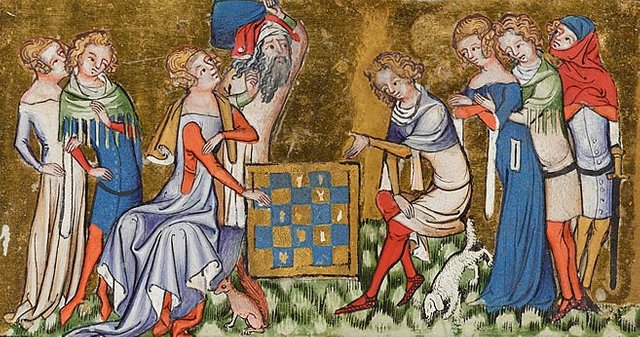
It ended in twelve moves. The wise man effortlessly outmaneuvered his opponent. The crowd looked on with satisfaction as the rascal was caught completely off guard.
Yet it was obvious to the wise man that something was left undone. He had expected his opponent to grow cross when he lost the game, even claim that it was unfair. Only once the rascal began to pitch a fit could he be tricked into revealing his own dishonesty.
Instead, he sheepishly rose from his seat, promising to collect two treasure boxes bursting with gold to pay the wise man, though, of course, he did not have the money.
But the wise man saw through this ruse. A swindler would naturally put on airs about going to collect the payment he owed, as a way of escaping the wrath of the crowd. He would flee the city while everyone waited for his return.
So the wise man bade his opponent to sit down and immediately challenged him to another game of chess---a double or nothing rematch. Four treasure boxes of gold to the winner.
And, tempted by the enormous risk of this new wager, the rascal accepted.
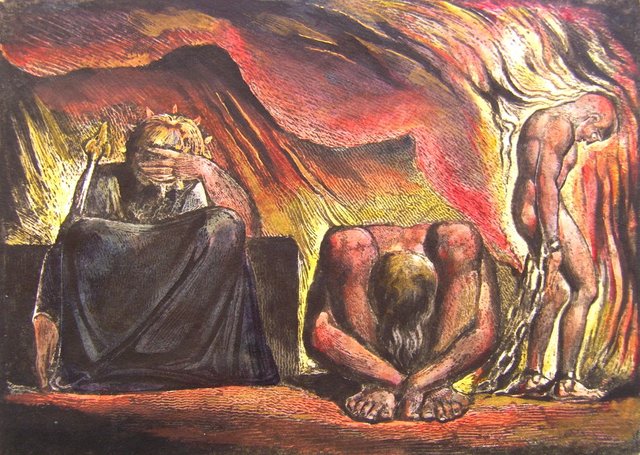
The second game ended in eight moves. Surely now, the crook would refuse to pay, or blatantly try to flee, or lose his temper and show his true colors.
But he only hanged his head, and softly promised to pay his debt immediately, in a voice on the verge of tears. Though he would have to sell all his property, he would honorably do so to preserve his good name.
This performance infuriated the wise man. How could such a miscreant pretend to have honor? And how could he keep up such an act, even after losing so much? Livid, the learned man understood that he had gone too easy on this lowlife. The situation now called for some merciful cruelty.
Forcing the calmness into his voice, he made another wager: all previous debts would be forgotten in exchange for one final chess game. The wise man would pledge one hundred treasure boxes of gold against the rascal's life as a free man. If he lost, then he would be sold into slavery, robbed of all property and dignity, and sent off to a labor camp to die.
The rascal was astounded. Never in his life had he encountered a wager of such depth. The life-and-death stakes set his brain ablaze. How glad he was to have lost the first two games.
He instantly agreed to the wise man's terms.
Chapter 5: The Master
The third game began much as the other two had. The novice struggled to get his more powerful pieces into position, and the expert set up a devastating stratagem.
But then, on the fifth move, the rascal did something that no one expected.
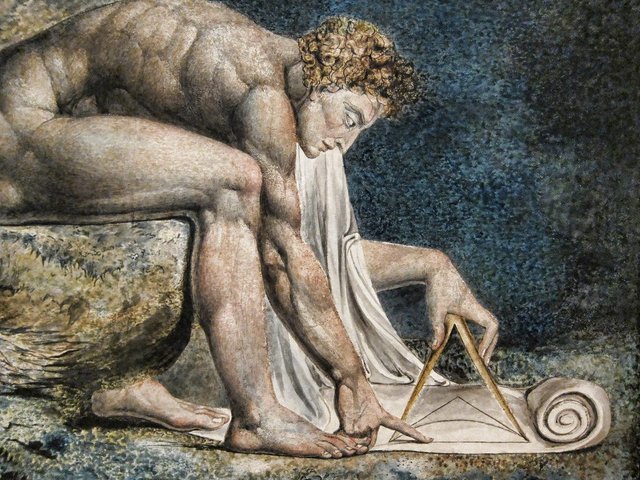
He pointed to an empty spot on the board. "On my next turn," he announced, "I shall move my knight here."
Now, some in the audience were stunned by the declaration, but the wise man rejoiced. Finally, his opponent had made a mistake. Being a seasoned liar, the only strategy this criminal could employ was a cheap feint. When his next turn came, and he did not move his knight to the promised square, his dishonesty would be witnessed by hundreds.
Confident of his victory, the wise man was not afraid to move his queen to the very spot his enemy had reserved for the next turn, as he was sure that was the safest square on the entire board.
And the rascal immediately sent his knight there, and captured the queen.
A confused murmur rose from the crowd. Why would their wise and untouchable leader fall prey to a broadcasted attack? Some began to wonder if he had fallen ill.
But the wise man was the most astonished of all. To his eyes, that last move had been impossible. He could not have misjudged his opponent. He knew how such men operated, and they could not violate the rules he had set for them in his mind.
Before anyone could process what had happened, the rascal spoke again: "For my next turn, I shall move my bishop here," and he pointed to another square.
Ah, so that was his game. The wise man instantly understood what was happening. The rascal would certainly keep his first promise, so that he could trick his enemy into believing a later lie. This second prediction was the real deception. The wise man would not be caught by such an obvious trap.
He moved his own bishop to the square that was staked by his enemy...and immediately lost it to the rascal.
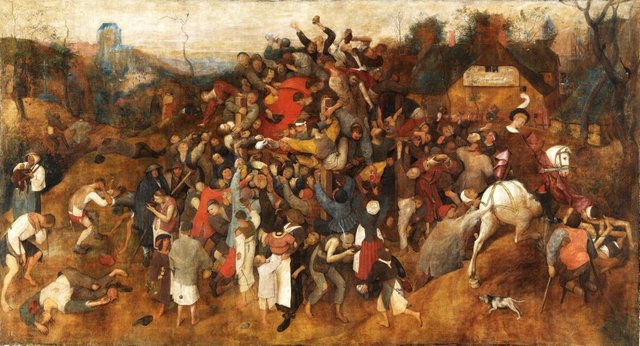
The crowd roared. A few even fainted. But none was more flabbergasted than the wise man.
That he had been wrong in his estimation of the rascal did not occur to him. No, there had to be some subterfuge, some crime at play here. Nothing that this scoundrel did could be considered legitimate. It would be better to call off the game right then and there.
But before any action could be taken, the con man once again announced his next move. And in his rage the wise man defied the prediction, moving one of his precious knights into harm's way, knowing that the enemy was bound to lie, eventually.
He lost the knight. And a rook. And another bishop, as piece by piece his army was dismantled. His hate would not allow him to believe his enemy's predictions, and he would not entertain the idea that he didn't know what was happening. If he kept the game going long enough, surely he would expose this charlatan.
Yet, with each loss, the crowd began to change. The disciples were horrified, but the rest of the crowd---the low people of the world---actually started to nod, laugh, and even cheer at each of the con man's plays.
But these were the same people who had been taken in by the rascal. Some even had lost their whole livelihoods. Yet now they applauded him, singing praises to his cunning, congratulating his every move.
How could this be? All the wisdom in the world did not know the answer.
The game ended, and the rascal was victorious. The wise man could not speak. He made only snarling noises and spray from his lips. His eyes would never quite close again they had bulged so far out of his head.
As he collapsed in a fit, the crowd carried their hero away. The wise man's coffers were emptied. A hundred treasure boxes bursting with gold were hauled out of them. And, though the wise man would try to contest to result of his wager, there were far too many witnesses for him to deny the debt he owed.
Chapter 6: The Winnings
The rascal lavished himself with luxury. His new wealth had become a source of delight for himself and his family.
And you would think that such a wealthy man would have no problems to speak of. But you would be wrong. Though the wise man was left penniless, and had gone mad, and had fled into the wilderness to eat bark and shriek at passersby, he still had many disciples. And they were determined to expose and destroy the one who had humiliated them.
Each of them challenged the rascal to a game of chess. And to ensure that he would accept their challenges, they sweetened their wagers with the highest possible stakes. Kingdoms, continents, treasure, and all manner of worldly wealth was attached to each chess game. And the rascal, being a fool for great risks, accepted every one.

And secretly he despaired, for he was still not a skilled chess player. He knew that his trick of announcing future moves would only work against a special kind of opponent. As soon as he was challenged by a person who did not hate him, he would lose everything that he had gained.
But did he lose? Did he suffer even a single defeat at the hands of the wise man's students?
You will remember that the wise man, when he first rose to power, sought to make all the people of the world like himself. He had groomed every one of his acolytes to perfectly follow his example.
So it is no surprise that they perfectly repeated all of his mistakes.
Every one of them was beaten, and all that they had wagered became the property of the rascal, who never lost a game of chess for the rest of his life.
His victory was bittersweet. Now that he owned everything, there were no more cons to pull and no risks that anyone else could offer him. Yet he could not be called unhappy. His wealth was boundless, and he even experimented, here and there, with good deeds toward people he had once wronged.
But his first opponent---the man he had bested on the chess board---was forgotten. His name is lost to history.
Chapter 7: The Moral
People who hear this story often disagree about what it means.
"Honesty is the best policy," is the lesson, according to some, since the rascal only won by telling the truth.
Or maybe that an appetite for risk is the key to gaining wealth.
Others argue that it is a warning against the single-minded hate that robs wise men of their senses.
Yet others insist that the lesson here is for educators---that requiring conformity causes students to inherit the blind spots of their teachers.
But the real secret is nothing more or less than this: wisdom has limits, and cunning has none. And if ever you see the two in heated battle, you will know which man to place your bets on.
@talanhorne,
Did you write this story? Ops I thought I was reading a Grimme Story! Great and very informative! I like to read this type of story mode articles! Keep it up!
Cheers~
Yes. I wrote it.
I'm glad you liked it.
Sir you made a nice conversation . Excellent story Sir....
Thanks @talanhorne
have a great day
Great story, my friend and I think it’s better to have a fair game so that your heart is freer! Thank you @talanhorne
Excellent review, of course, you have to risk sometimes, and if you have a wise approach, you can win the game!
Very very interesting story you are a great writer because reading this post i could make an image in an almost movie way in my mind :). Regards
Great time conversation. Excellent thinking & nice story.
Resteem
Great review& story .. good Luke
Thanks for this awesome details
Cheers!
@talanhorne - Sir today I have learnt how chess born... it's very nice & valuable story mode post Sir... Nice you decided to share it Sir...
+W+
This article is professional & Excellent writing . so great experience.
Thanks @talanhorne
100% like and resteem
Hi talanhorne,
Visit curiesteem.com or join the Curie Discord community to learn more.